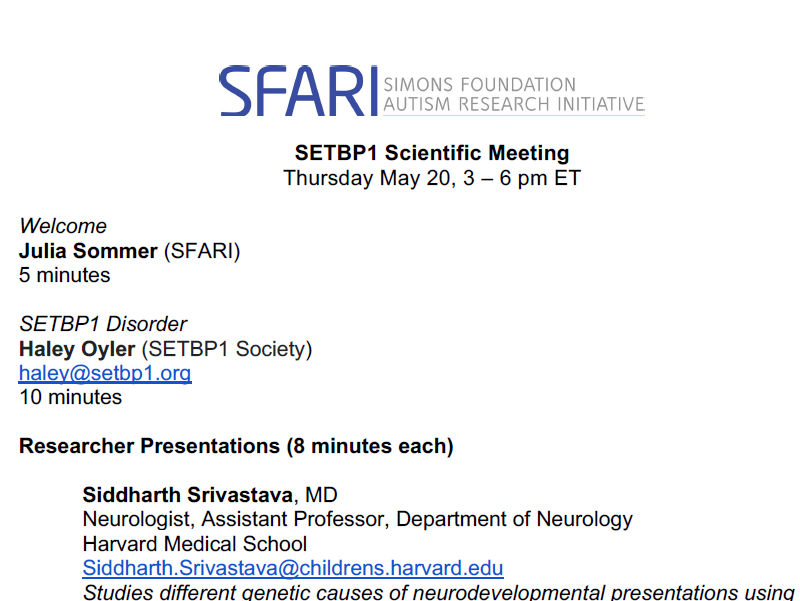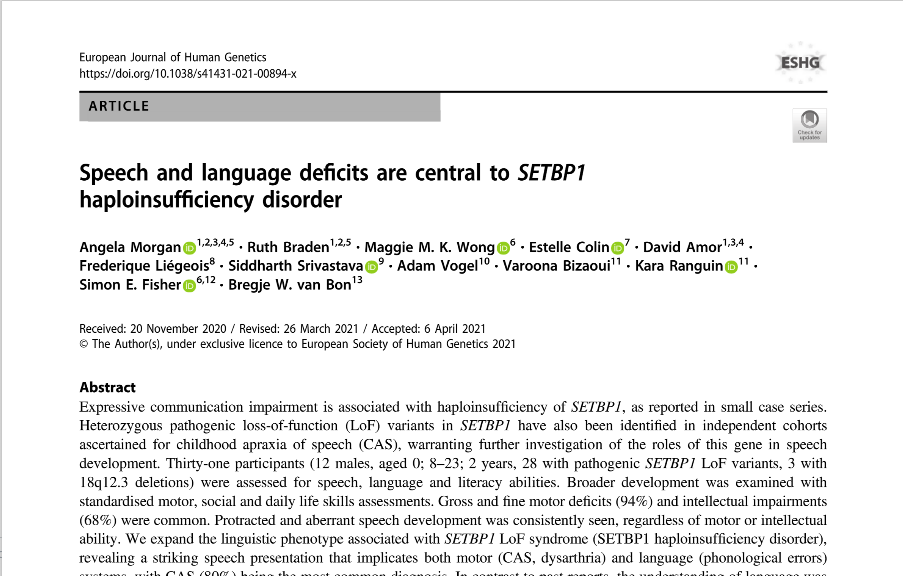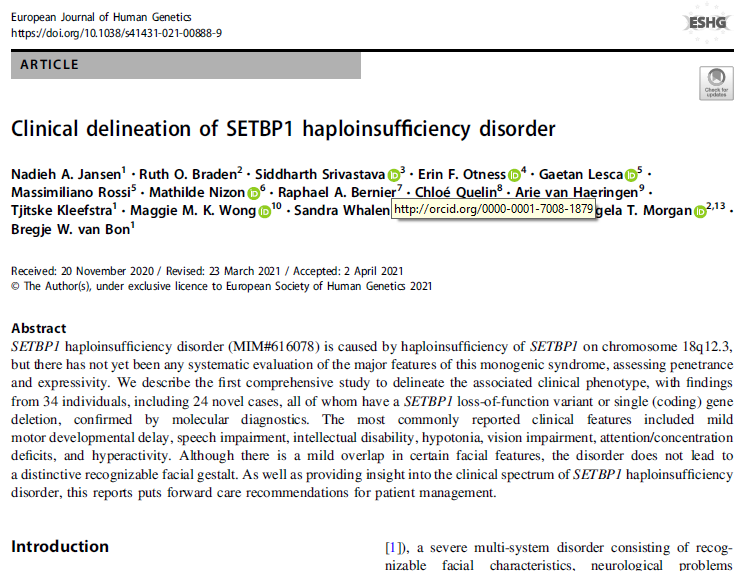New SETBP1 haploinsufficiency disorder Resource Guide – Available in English & French!!
A NEW resource guide to help medical specialists, educators, families, and therapists to better understand SETBP1 haploinsufficiency disorder (SETBP1-HD) is NOW AVAILABLE! This resource guide takes the findings from the 2 recent SETBP1-HD publications (Speech and language deficits are central to SETBP1 haploinsufficiency disorder and









